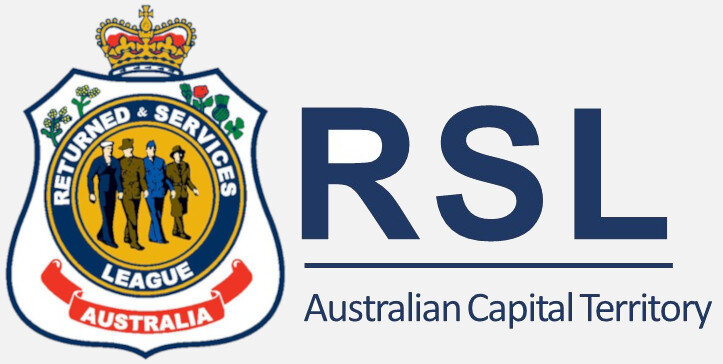Why Veterans Excel as Leaders
Highly trained, dedicated and hard-working, veterans make exceptional leaders.
The transition from military life to civilian careers often brings into focus a unique set of skills and experiences that veterans carry with them. Among these, their potential for leadership stands out significantly. Military veterans, shaped by rigorous training and complex experiences, often emerge as exemplary leaders in various sectors, from corporate enterprises to non-profit organisations.
Over 5,000 highly trained people leave the Australian Defence Force each year, looking for a fulfilling career in the civilian job market. If you’re an employer who’d like to tap into this exceptional talent pool, reach out to the RSL Veterans’ Employment Program today.
This article explores the multifaceted reasons why military veterans are well-equipped to excel in leadership roles beyond the battlefield.
Disciplined Approach to Leadership
Discipline is the cornerstone of military training, ingraining in service members a sense of order, punctuality, and commitment. This disciplined approach is not just about following orders; it's about cultivating a mindset geared towards meticulous planning, execution, and the consistent pursuit of excellence. In the civilian sector, this translates to leaders who are organised, reliable, and capable of steering their teams through complex projects with precision.
Military veterans are known for their ability to set clear goals, develop strategic plans, and ensure that their teams are aligned with these objectives. This disciplined approach is particularly valuable in today’s fast-paced business environment, where leaders are expected to deliver results under tight deadlines and often with limited resources.
Experience in High-Pressure Situations
Perhaps no other profession faces the kind of high-stress, high-stakes situations encountered in the military. Veterans often have experience making critical decisions in rapidly changing environments, where the consequences of their choices can be monumental. This exposure to intense pressure equips them with exceptional crisis management skills.
In the civilian workplace, veterans bring this ability to remain calm and focused under pressure, an invaluable trait for leaders who must navigate the ever-present challenges and uncertainties of business. They are adept at assessing situations quickly, making informed decisions, and taking decisive action to resolve issues.
Strong Teamwork and Communication Skills
Teamwork is at the heart of military operations. Service members learn to work cohesively in diverse groups, often in challenging environments. This experience instils a deep understanding of the importance of collaborative effort and collective responsibility. In leadership roles outside the military, veterans often excel in fostering a team-oriented culture, recognising the strengths of each team member and encouraging collaboration to achieve common goals.
Communication is another critical aspect honed in the military. Clarity, brevity, and effectiveness are essential in military communication, where misunderstandings can have serious consequences. Veterans bring this skill to their civilian leadership roles, ensuring that their teams are well-informed, that directives are clear, and that there is an open channel for feedback and discussion. This skill is particularly valuable in managing large teams or in situations where coordination across different departments or organisations is required.
Adaptability and Problem-Solving
The military environment is characterised by constant change and unpredictability. Service members are trained to be adaptable, quickly adjusting to new roles, environments, and challenges. This flexibility is a crucial trait for leaders in the civilian world, where market dynamics, technological advancements, and organisational changes are constant.
Veterans are also adept at problem-solving, often having to find innovative solutions to complex problems in high-pressure situations. This skill translates well to the business world, where leaders are frequently faced with challenges that require creative and effective solutions. The ability to think on one's feet and devise effective strategies in response to unforeseen challenges is a hallmark of veteran leadership.
Integrity and Accountability
The military instils a strong sense of integrity and accountability in its members. These values are critical in building and maintaining trust, both within military units and in relationships with external stakeholders. Veterans often bring these values into their civilian roles, setting a high standard for ethical conduct and responsibility.
In leadership positions, veterans' commitment to integrity ensures transparent and ethical decision-making, while their sense of accountability ensures that they stand by their decisions and actions, taking responsibility for the outcomes. This commitment to integrity and accountability fosters trust and respect from team members and stakeholders alike, which is essential for effective leadership.
To read what Australian Census data tells us about how hard working veterans are, check out this article.
The RSL Veterans’ Employment Program can connect you
The transition of military veterans into leadership roles in civilian life brings a wealth of benefits to organisations and communities. Their disciplined approach, experience in high-pressure situations, teamwork and communication skills, adaptability, problem-solving abilities, and strong sense of integrity and accountability are assets that make them effective leaders.
If you’d like to join the Australian organisations supporting greater employment opportunities for veterans while simultaneously accessing a world-class talent pool, reach out to the RSL Veterans Employment Program. It's free to advertise a vacancy. Fill niche positions fast!
Want to see more content like this? Check out all our employment articles here.


